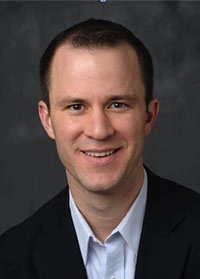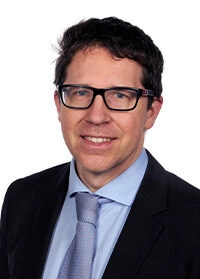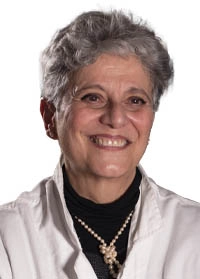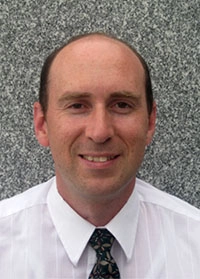The Scientific Advisory Board (SAB) provides strategic guidance and direction for VisualSonics technology and plays a key role in guiding and prioritizing our global research investments.
The board provides VisualSonics with a unique opportunity to shape the future of basic and clinical research, while continuing to focus on filling our customer needs, by recommending promising scientific and technical developments for practical applications with the VisualSonics product and application offerings.
The SAB is guided by members of the VisualSonics global leadership team and consists of leaders in the fields of cardiovascular research, bioengineering, molecular imaging, and ultrasound and photoacoustic technology. A brief overview of current board members can be found below:

Dr. Stuart Foster, PhD
Senior Scientist, Sunnybrook Research Institute, Professor, University of Toronto
Board member duration:
Duration: 2020 - Present
Dr. Foster is a senior scientist at Sunnybrook Research Institute and Professor, Department of Medical Biophysics, University of Toronto.
His pioneering inventions in the field of micro-ultrasound have enabled powerful high-resolution noninvasive imaging for the study of disease development and the translation of micro-ultrasound to clinical applications; Stuart is a Fellow of the IEEE, the American Institute of Ultrasound in Medicine, the Royal Society of Canada and the Canadian Academy of Engineering.
He is the founder and former Chairman of FUJIFILM VisualSonics Inc., a company dedicated to preclinical and clinical micro-ultrasound.
He has previously been the recipient of numerous distinctions in biomedical engineering including the Eadie Medal, the Queen’s Golden Jubilee Medal, the Manning Award of Distinction for Canadian Innovation, the Ontario Premier’s Discovery Award, and the IEEE Rayleigh Award. He was elected to foreign membership of the US National Academy of Engineering in 2017 and received the 2020 Biomedical Engineering Award from IEEE.
AREAS OF EXPERTISE:
- Ultrasound transducers and instrumentation
- Applications of micro-ultrasound in medicine and biology
- Microbubble and nanoparticle biophysics
- Molecular imaging and photoacoustic imaging

Dr. Craig Goergen, PhD
Leslie A. Geddes Associate Professor, Weldon School of Biomedical Engineering, Purdue University
Board member duration:
Duration: 2020 - Present
Dr. Craig J. Goergen is the Leslie A. Geddes Associate Professor in the Weldon School of Biomedical Engineering at Purdue University in West Lafayette, Indiana, USA. He holds a BS in Biomedical Engineering from Washington University in St. Louis and MS and PhD degrees in Bioengineering from Stanford University. His postdoctoral training in molecular optical imaging at Harvard Medical School focused on cardiac disease and left ventricular remodeling.
After joining the faculty at Purdue University in December of 2012, Dr. Goergen has worked to establish the Cardiovascular Imaging Research Laboratory. His group’s mission is to advance imaging techniques to study disease progression and improve detection and treatment across a broad spectrum of medical conditions.
Under his guidance, the laboratory initially focused on developing imaging techniques to study both cardiac and vascular disease, but current efforts have taken a more expansive approach, including research projects from cancer to diabetes.
Dr. Goergen’s overall aim is to advance the field of imaging to help diagnose, treat, or prevent disease, ultimately providing patients with longer and more fulfilling lives.
AREAS OF EXPERTISE:
- Cardiovascular biomechanics
- High frequency 4D ultrasound
- Photoacoustic imaging using endogenous contrast
- Multimodality small animal imaging

Dr. Fabian Kießling
Professor Director, Institute for Experimental Molecular Imaging (ExMI) at RWTH Aachen
Board member duration:
Duration: 2022 - Present
Pubmed
Dr. Kiessling is a full professor and director of the Institute for Experimental Molecular Imaging (ExMI) at RWTH Aachen (Rheinisch-Westfälische Technische Hochschule Aachen). He is also one of the directors of the RWTH Helmholtz Institute for Biomedical Engineering.
His research focusses on the development of new imaging methods and probes, with a particular focus on oncology and diseases that go along with angiogenesis and vascular remodeling. He worked on the imaging technique volumetric area detector computed tomography and published the new ultrasound technique Motion Model Ultrasound Localization Microscopy (mULM) together with his colleague Georg Schmitz.
The ultrasound technique was preclinically tested and used in a first clinical application. Both methods allow non-invasive imaging of hair-thin blood vessels in tumors and other tissues.
In his translational research, imaging-guided therapy plays an important role including the investigation of biological barriers for drug delivery and the development of strategies to overcome these barriers by the use of nanomedicines, drug delivery systems, and other therapeutics.
AREAS OF EXPERTISE:
- Probe development
- Radiology
- Molecular imaging
- Super resolution

Prof. Annarosa Arcangeli
Professor of General Pathology, Faculty of Medicine and Surgery of the University of Florence
Board member duration:
Duration: 2023 - Present
Pubmed
Prof. Annarosa Arcangeli, M.D., PhD, is a full Professor of General Pathology at the Faculty of Medicine and Surgery of the University of Florence since 2012. She is also the Scientific Director of LiGeMA, a laboratory of the University of Florence devoted to the production of animal models, as well as founder and Scientific Director of MCK Therapeutics Srl, a spin off of the University of Florence for the development of recombinant antibodies.
Prof. Arcangeli has a long experience in research on ion channels and their role in neoplastic transformation. In particular, she one of the world's experts in hERG1 potassium channels, and its role in cancer. Following several periods of work at the University of Cambridge, UK, Prof. Arcangeli also gained considerable biotechnology experience for genetic manipulation of eukaryotic cells and mammals in order to produce genetically modified mice of different human diseases, as well as for the production of monoclonal antibodies through the use of recombinant proteins in E. coli, yeasts and mammalian cells.
AREAS OF EXPERTISE:
- Definition of the molecular mechanisms and of the role of the tumor microenvironment in neoplastic establishment and progression
- Discovery of novel antineoplastic therapeutic strategies based on the targeting of ion channels
- Development of novel recombinant antibodies targeting ion channel proteins
- Molecular imaging in oncological pre-clinical research
Previous Scientific Advisory Board Members

Dr. Roger Zemp, PhD
Professor, University of Alberta
Board member duration:
Duration: 2020 - 2024
Pubmed
Dr. Roger Zemp is a world-leading researcher in ultrasound and photoacoustic imaging technology development.
He earned his PhD from UC Davis in 2004 and completed a postdoctoral fellowship at Washington U. in St. Louis in 2007. He pioneered photoacoustic molecular imaging and the development of a new form of microscopy, photoacoustic remote sensing microscopy and its use for virtual histopathology.
He also has pioneered the development of bias-switchable row-column 2D arrays enabling 3D or steerable 2D imaging with a band-aid-sized patch. This technology is enabling improved 3D ultrasound and photoacoustic imaging. He has furthermore developed a substantial program in microfabricated ultrasound transducers with industry partners and pioneered row-column arrays, multi-frequency arrays, transparent arrays, and flexible arrays.
He has published over 100 peer-reviewed journal papers and over 230 conference papers. He is co-chair or program committee member of various conferences in biomedical optics and ultrasonics and associate editor of 4 journals.
AREAS OF EXPERTISE:
- Photoacoustic Imaging
- Ultrasound Technology
- Molecular and Functional Imaging
- Biomedical Optics